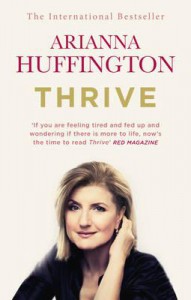 In a modern-day quest to find success, co-founder and editor-in-chief of the Huffington Post, Arianna Huffington explores the parameters of what it means to ‘live a good life’ in her recent book, Thrive.
In a modern-day quest to find success, co-founder and editor-in-chief of the Huffington Post, Arianna Huffington explores the parameters of what it means to ‘live a good life’ in her recent book, Thrive.
Being a huge success in her industry being named 12 in the Forbes list for Most Influential Women in Media and the 52nd most powerful women in the world by Forbes, she shares her answers to success and calls to redefine what it means to be successful in today’s world. While the book can be a little one-sided and preachy, this book provides some brilliant, deep messages we can all take away to lead a better life. And not just for ourselves but also for our children to set them on their own path of a ‘good life’.
Arianna argues that while money and power govern success in our modern world, we need a Third Metric. This Third Metric consists of four pillars including well-being, wisdom, wonder and giving – which make up the four sections of her book as outlined below.
To find well-being, Arianna meditates, breathes, walks and sleeps more. These have been the pillars to her own well-being journey, however she argues and even begs that everyone should follow these four pillars to do well. Granted meditation, breathing and walking are all sound – however any form yoga, breathing and exercise would probably do the same thing here, where sleep in non –negotiable.
Arianna on sleep… ‘Our creativity, ingenuity, confidence, leadership and decision-making can all be enhanced simply by getting enough sleep. (pg 75) By sleeping more we, in fact, become more competent and in control of our lives. (pg 80)
Sleep deprivation is actually used as a form of torture and research shows that sleep plays a critical role in thinking and learning including memory and language articulation and without it can lead to serious health problems including depression and anxiety, major accidents especially while driving, operating machinery and impaired ability to perform work duties – especially medical professional.
So sleep is really one of the nonnegotiables to living a healthy life – yet why do so many of us try to squeeze and extra couple of hours into our day and forego sleep?
And imagine the impact of lack of sleep on our children. When I was teaching a class of six-year olds, I could tell the kids who had a full nights sleep and those who hadn’t. It affected their concentration, focus on tasks and behaviour. Children aged 3-5 should get 11-13 hours of sleep a night, 6-13 year olds need 9-11 hours every night.
Arianna on awe… ‘To fully experience the world around us, we first have to be able to free ourselves from the distractions that are constantly begging for our attention.
So true! I have written about this many times on my parenting blog that when we take the kids to the park and spend the whole time scrolling through our phones – we miss the wonder and awe of our kids on the swing and going down the slide and don’t experience the very thing of being at the park and having fun with our kids because we are too busy being distracted by our phones. That is just one example. For our kids, the distractions we have as parents are so much greater than our parents have that our kids have to fight for our time more. Put the phone away and join in.
The second pillar is wisdom and our need right now to gain insight from our forefathers, habit, beliefs, heart and intuition to help us lead a good life. Here are the take away lessons I resonated with.
Arianna on friends… My family, of course, in on board with me. Beyond our families, we choose who is on the train with us, who we share our journey with. The people we invite on the train are those with whom we are prepared to be vulnerable and real, with whom there is no room for masks and games. (pg 119)
This is a great reminder that we shape our own destiny. We get to choose where we want to be in our life and who we want to share it with. Intuition and heart play a major role in knowing who to have along for the journey.
Arianna on time in children… ‘Children are much more connected to the moment, and much less connected – yoked, actually – to the artificial constructs of time that we’ve imposed on ourselves. (pg 143)
I love this! Yes, children completely live in the moment. That is why they need us to show them empathy, love, compassion and kindness as they will remember how we treated them – not what we spoke to them. This is also why our reactions as adults are so important with our children and our language we use to speak to our children resonate strongly. Have you ever said something to your kids and thought – I sound just like my mum! This is what she said to you and it has stuck with you. You have already become your child’s inner voice.
It is also a great reminder that time is irrelevant to children. The need for you to be home to cook dinner at the expense of them on playing on the swings has no relevance and so we need to tread carefully and be kind around the concept of time. Telling our kids to ‘hurry up’ all the time just creates extra stress and it is our job to get them out the door on time.
Arianna on habits… ‘ Habits are habits for a reason. Humans lead complex lives, and one of the traits we’ve developed that has allowed us to be such productive creatures is the ability to make many learned traits and responses an automatic part of our lives, buried so deeply in the inner workings of our subconscious that they no longer require conscious thought…. And whether good or bad, once established habits grow roots and entrench themselves in our lives. (pps 159-160)
So relevant! Think about your daily habits. Do you brush your teeth the same way every day? Do you dry yourself when you get out of the shower the same way every day? What other habits have you formed and have lasted a long time? As a parent, our job is to instill the right habits in our children. From the very first morning you bring your baby home, you are creating a habit for them. It is important to think about what habits you want to form with your kids around nutrition, health, exercise, organization, routines and finances. Read more about forming good habits for children here http://bombardedmum.com/forming-good-habits-for-your-children/
Arianna on resilience… ‘How we respond to adversity can make a huge difference to our health and to our lives.’ (pg. 169).
How resilient are you? Is your body healthy enough to bounce back from a situation and are you mentally prepared to bounce back from adverse situations?
Building resilience in our children is key. Teaching our children how to bounce back from adverse situations is going to help them all through their life. As Arianna points out, knowing how to deal with the set backs can help your kids health and overall lives. I am in the process of researching an entire book on the subject of resilience in kids – read more about resilience here http://bombardedmum.com/building-resilience-in-your-child/
Arianna gives an example in a business sense of a study at a company who downsized 50 per cent showing that two-thirds of the sample broke down in various ways. Of the third that transitioned successfully, they equated it to the three C attitude. These people were showing resilience through Commitment to join in and be part of the solution; Control the situation through resignation and Challenge – ‘finding ways to use the crisis to strengthen themselves, to build resilience and grow’. There is a lesson in here for all of us.
This is the shortest section on the book and it is designed to get us thinking about the wonder of life. Death, coincidences, intuition and the special moments of silence and what is around us.
Arianna on silence… ‘The silence in our lives is under assault on all fronts: blaring headline news, squawking car alarms, buzzing and chirping smartphones, wailing sirens…, numbing elevator music and screens fitted into every available space. We are wired, plugged in, constantly catered to, and increasingly terrified of silence..’ (pg 188)
Have you ever just turned everything off and just listened? I was doing a film shoot with my CEO a couple of weeks ago in the middle of the city. It was set outside right near where I live and work and we had to wait for the noise to slow before he spoke to camera – the helicopters, buses, sirens, birds, machinery and just constant buzz of the city were so apparent and yet, I had not stopped and spent 10 minutes just to listen to the noise around. It is busy, hectic and I’m sure it is impacting on our ability to stop, reflect and think ‘big picture’ and clearly.
Arianna on death… ‘No matter how good and fulfilling a life we have, no matter how successful we are at filling out lives with wellbeing, wisdom, wonder, and giving, at some point our life is going to end.’ (pg 203)
Arianna illustrates this beautifully with the story of her dying mother. I was moved to tears at the moment she described and while death is inevitable, do we really give it any thought?
This is my favourite section of the book. Maybe it is the stage of life I am in right now, but it reaffirmed a lot of areas I am passionate about in my life and rings true also for my children.
Arianna on creativity…. ‘We need to give ourselves permission to follow what makes us feel most alive…. Don’t squash your creative instincts because you’re not ‘good enough’ to turn what you love to do into a career’ (pg 247)
I am constantly telling my kids to do what makes them feel good and have a go at everything because they just might find that thing. For me, I love writing and when started my very first job in Public Relations my manager told me I was a terrible writer. It stayed with me for a good 15 years! Until my love for it overtook my negative thoughts and now I write every day. I think in words and sentences and they quickly become an article. Everyone is creative at something.
Arianna on empathy… It’s not enough to tell our children about empathy; we have to show them – which means, of course, that we have to demonstration it ourselves. Parents teach empathy the same way they help their children learn to talk’ (pg. 244
So true! This is one of the cornerstones of parenting for me. Children learn empathy on the knees of their parents before they can talk. We need to show empathy so they can.
Arianna on giving… ‘Empathy, compassion, and giving – which is simply empathy and compassion in action – are the molecular building blocks of our being. With them we expand and thrive; without them we wither. (pg 237)
This needs no explanation. It is really the conclusion of the section and sums up the book beautifully – without these components we wither, not thrive.
Thrive allows you to ponder the redefinition of success and how it looks to Arianna and to you. It is a must read if you are looking for a new direction or some insight into what your life means to you right now.
Thrive is available at all good book stores and online in Australia and Internationally.
Have you read Thrive? Leave your thoughts here or come over to Facebook and join the chat.
Want more? Sign up to get weekly tips and advice into your inbox here
About the Author: Anna Partridge
Anna Partridge is a Parent Educator, school teacher, holds a Bachelor of Communications and is a freelance parenting writer at Huffington Post. Anna is also mum to three beautiful, highly spirited children aged 9, 8 and 5. She created Positive Parenting with Anna Partridge to share the inspirations and joys of raising the next generation and to allow mums to think about the ‘big picture’ of parenting by providing tips and advice to instil the right habits, values and beliefs in their children from the start. She is privileged to work alongside families to create calm and balance, help raise confident and resilient kids and support strong and connected relationships. Anna offers private parenting and family coaching at www.annapartridge.com






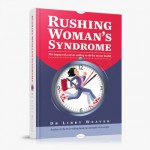
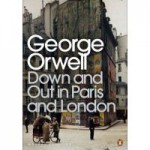

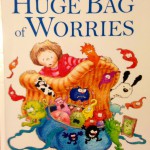
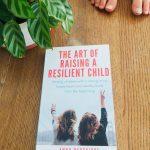
Brilliant review! I love this BOOK! For parents who find it challenging to make space for reading the audio version is brilliant too. Thank you for reminding me of the gems within this book and your perspective of it too is wonderful.
Thanks @Kerry! I love the idea of the audio book… even just to listen to in the car or instead of the radio in the mornings. I have always loved reading before bed as it slows my brain down enough to get to sleep but it can be a struggle to find any other time to read such great books.
Sounds like an amazing book Anna – thanks for writing such a detailed review. Sounds like Arianna has lots of words of wisdom to share.
@Lauren – it was a good one. I imagine Arianna must be in her late 50s/early 60s and so has seen a lot go on in the business world and it was good of her to share her wisdom with us! Certainly some good messages.
What a fantastic book review. Thanks so much. I am off to the bookshop this week because I have another book I want to buy. I probably should join a library but I cant bear to give a book back once I have it in my hands. Cant wait to read further about wisdom.
@Rachel – I am with you on the library thing. And I also like to fold the corners down and even worse, get a pen and highlight good quotes so I would be no good with a library book! Enjoy reading Thrive.
Hi Anna, great review of a fantastic book. I loved Kerry’s note too about listening to Audio books when there’s not enough time to read!
Thanks for stopping by @Sarah – yeah me too about the audio books! Look forward to talking about it with you when I see you next.
Philosophy is the discipline that studies major and universal questions, such as existence, knowledge, values, reason, and language. It covers many subjects and problems, ranging from ethics and political figures to metaphysics and logic. Here are the main aspects of philosophy:
1. Definition of Philosophy
Philosophy comes from the Greek words “philos” (love) and “sophia” (wisdom). It is the desire to realize and make sense of the world around us and our place in it.
2. The Main branches of philosophy
– Ontology research of the essence of being and existence.
– Epistemology the study of the nature and limits of cognition.
– Ethics the analysis of moral principles and concepts of good deed and evil.
– Logic research of the forms and principles of correct thinking.
– Socio-political philosophy the study of questions of power, justice and the state.
3. Famous Philosophers
During the history of philosophy, almost many thinkers have made meaningful contributions to this science. Some of the most famous include:
– Socrates, considered the founder of Western philosophy.
– Plato, a pupil of Socrates, developed the doctrine of forms.
– Aristotle, the creator of logic and a large number of scientific fields.
– Immanuel Kant, known for his own Marcel Proust critical philosophy and work on moral issues.
4. The Relevance of Philosophy in the Modern World
Philosophy remains relevant in the modern world because it helps people to understand complex social and ethical issues, but also develops critical thinking. It affects the legal system, politicians, and various fields of science.
5. Practical Applications of Philosophy
Philosophical ideas penetrate everyday life. Ethical reflection helps people do the correct thing in difficult situations, and philosophical analysis contributes to best understanding of issues related to technology, art, and social justice.
Philosophy is including an academic discipline, but also a way of thinking assists us to understand life’s complexities and make informed choices.
Philosophy is the discipline that studies major and universal questions, such as existence, cognition, values, reason, and language. It encompasses a vast number of subjects and issues, ranging from ethics and political figures to metaphysics and logic. Here are principal aspects of philosophy:
1. Definition of Philosophy
Philosophy comes from the Greek words “philos” (love) and “sophia” (wisdom). It is zeal to realize and make sense of the world around us and our place in it.
2. The Main branches of philosophy
– Ontology the study of the essence of being and existence.
– Epistemology the study of the nature and limits of cognition.
– Ethics the analysis of ethical principles and concepts of good and evil.
– Logic the study of the forms and principles of correct thinking.
– Political philosophy the study of questions of power, justice and the state.
3. Notable Philosophers
Throughout the history of philosophy, almost many thinkers have made significant contributions to this science. Some of the most recognizable include:
– Socrates, considered the progenitor of Western philosophy.
– Plato, a student of Socrates, developed the doctrine of forms.
– Aristotle, the creator of logic and a huge number of scientific fields.
– Immanuel Kant, known for his James Joyce critical philosophy and work on moral issues.
4. The Relevance of Philosophy in the Modern World
Philosophy remains urgent in the modern world as enables people to understand difficult social and moral issues, and also develops critical thinking. It influences the legal system, politicians, and different fields of science.
5. Practical Applications of Philosophy
Philosophical ideas enter everyday life. Ethical reflection helps people do the right thing in complex situations, and philosophical analysis contributes to best understanding of issues related to technology, art, and social justice.
Philosophy is not only an academic discipline, yes and method of thinking assists us to understand life’s complexities and make informed choices.
Philosophy is the discipline that studies fundamental and universal questions, including existence, knowledge, values, mind, and language. It encompasses many subjects and issues, from ethics and politicians to metaphysics and logic. Here are the main nuances of philosophy:
1. Definition of Philosophy
Philosophy comes from the Greek words “philos” (love) and “sophia” (wisdom). It is zeal to realize and make sense of the world around us and our place in it.
2. The Main branches of philosophy
– Ontology research of the essence of being and existence.
– Epistemology the study of the nature and limits of knowledge.
– Ethics the analysis of moral principles and concepts of good and evil.
– Logic the study of the forms and principles of correct thinking.
– Socio-political philosophy the study of questions of power, justice and the state.
3. Eminent Philosophers
During the history of philosophy, almost many thinkers have made weighty contributions to this science. Some of the most famous include:
– Socrates, considered the progenitor of Western philosophy.
– Plato, a pupil of Socrates, developed the doctrine of forms.
– Aristotle, the creator of logic and a huge number of scientific fields.
– Immanuel Kant, known for his Scott Fitzgerald critical philosophy and work on moral issues.
4. The Relevance of Philosophy in the Modern World
Philosophy remains relevant in the modern world because enables people to understand difficult social and ethical issues, and also develops critical thinking. It affects the legal system, politicians, and various fields of science.
5. Practical Applications of Philosophy
Philosophical ideas enter daily life. Ethical reflection helps people do the correct thing in complex situations, and philosophical analysis contributes to better understanding of issues related to technology, art, and social justice.
Philosophy is including an academic discipline, but also method of thinking assists us to understand life’s complexities and make informed choices.